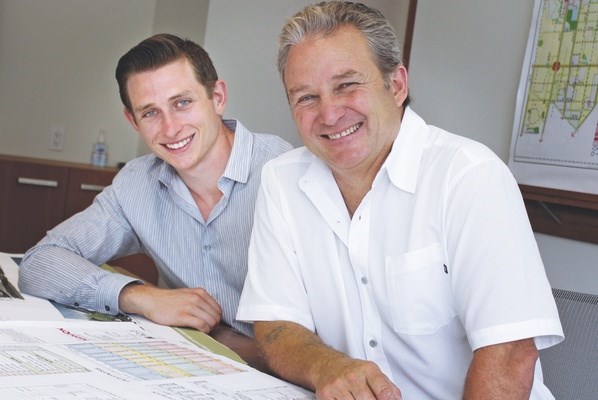Marcon Developments has done it all: home building, condominium development and construction, ice rinks, movie theatres and commercial buildings.
But a new area for the company is social-purpose real estate. That involves partnering with a non-profit to develop land the organization owns.
Marcon is working with Semiahmoo House Society to develop a 72-unit rental building in Surrey and with the United Church on a property in North Vancouver.
“What we found with these kinds of projects is that it adds a different element to our business,” said Nic Paolella, development manager with Marcon. “We wrap our heads around working with a new organization and it becomes an exciting partnership.”
Social-purpose real estate has become more common in Metro Vancouver, driven in part by churches that own valuable land but are struggling to maintain aging buildings while their congregations have been shrinking.
Developing the land can give such organizations a financial boost, while at the same time help them to deliver on their mission.
Marcon has developed a market condo project on land the United Church owns; in return, the congregation will get an endowment fund for the operation of its church.
For the Semiahmoo House Society, a social service agency that works with people with developmental disabilities, Marcon is acting as the contractor not the developer. The company also steered the project through the rezoning and permitting process.
Using land it gradually acquired over the past 10 years, the society has just broken ground on the $15 million rental project. Of the 72 units in the building, 21 will be used to house Semiahmoo’s clients. The other 51 will be rented to the public at affordable rates, meaning rent will be set at 10 per cent of market rates and potential tenants will be income-tested.
Marcon has brought more than construction and development expertise to the table, said Doug Tennant, executive director of the Semiahmoo House Society.
“Our original plan was, our complex was going to be 55 units and they were going to be condos that were going to be sold, and at the end of the day we were going to end up with 12 of those condos,” Tennant said.
“Marcon came to us two years ago and said, ‘We’ve redone the numbers — it looks like you could own the whole building and it could be a rental building where you could have 20 units and the rest of them could be for the general public.’”
When the project is completed, Semiahmoo will own and manage the building.
Social-purpose real estate can be structured many different ways, said Robert Brown, president of Catalyst Community Developments. Catalyst is a non-profit organization that provides development and consulting work for other non-profits that are interested in developing land they own.
Catalyst is currently working with the Lutheran Church in Vancouver’s Oakridge neighbourhood. For that project, Catalyst and the church will be joint venture partners in a redevelopment that includes 45 units of below-market rental housing and retail space. The church will be the sole owner of a new church building.
Brown said financing for these projects can be found through “foundations and individuals who want to invest money as opposed to outright donate it.”
Those investors get a return from the projects, although it’s not as much as they would get from an ordinary market condo project.
“They want to invest their money, they want a small return, but they want to invest in projects that provide a community benefit,” Brown said.
Brown believes social-purpose real estate can help provide affordable housing for working people who make modest incomes in the $30,000-to-$60,000 range. That type of housing is sorely needed in Metro Vancouver, where nearly half of renters pay over the recommended 30 per cent of their income on rent, according to the BC Non-Profit Housing Association.
In Surrey, Tennant has seen huge interest from the public for his society’s rental building. Not only is there a big need for housing for people with disabilities, he said, but the building will be the first purpose-built affordable rental building constructed in South Surrey in the past 30 years.
Tennant believes developers who partner with non-profits will also see a real business benefit.
“Marcon is doing a $15 million project, and word of mouth is very important in the social services world,” Tennant said. “The fact that they’ve been doing such a good job with us and we’ve been able to share with other people what a good job they’re doing, I’m sure we’ll be able to get them business in the future.”
@jenstden
For business news go to biv.com



